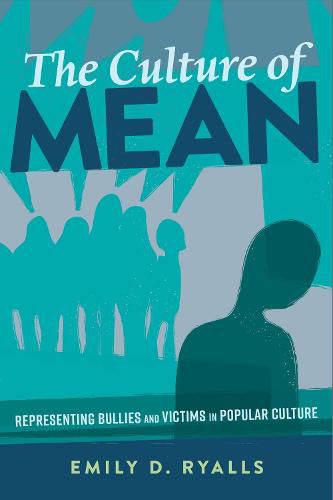Readings Newsletter
Become a Readings Member to make your shopping experience even easier.
Sign in or sign up for free!
You’re not far away from qualifying for FREE standard shipping within Australia
You’ve qualified for FREE standard shipping within Australia
The cart is loading…






This title is printed to order. This book may have been self-published. If so, we cannot guarantee the quality of the content. In the main most books will have gone through the editing process however some may not. We therefore suggest that you be aware of this before ordering this book. If in doubt check either the author or publisher’s details as we are unable to accept any returns unless they are faulty. Please contact us if you have any questions.
The Culture of Mean is the first book-length feminist critical exploration of representations of youth bullying in media. Bringing into conversation scholarship on feminism, media, new communication technologies, surveillance, gender, race, sexuality, and class, Emily D. Ryalls critically examines the explosion of discourse about youth bullying that has occurred in the United States during the last two decades. Countering the monolithic and extreme cultural reaction to narratives about bullying, Ryalls argues that, while it seems common sense to view bullying as always wrong and dangerous, not all aggression is bullying and it is problematic to assume so, because it becomes very difficult to differentiate between healthy conflict and unhealthy (potentially violent) torment. Moreover, since the label bullying often does not differentiate between teasing, conflict, sexual harassment, and violence, increasingly the most common way to deal with young people accused of bullying is to criminalize their actions. Through an analysis of books, film, television, and journalistic accounts of bullying, The Culture of Mean shows how constructions of bullying in popular culture create an overly simplistic binary of good and bad people. This process individualizes the problem of bullying and disallows a more complex understanding of the structural issues at work by suggesting that putting an end to bullying simply requires incarcerating those evil teens who are prone to bullying behaviors. This critical perspective of bullying will be of interest to scholars and students interested in the fields of girls’ studies, cultural studies, communication, education, sociology, and media studies, as well as parents of school-aged children.
$9.00 standard shipping within Australia
FREE standard shipping within Australia for orders over $100.00
Express & International shipping calculated at checkout
This title is printed to order. This book may have been self-published. If so, we cannot guarantee the quality of the content. In the main most books will have gone through the editing process however some may not. We therefore suggest that you be aware of this before ordering this book. If in doubt check either the author or publisher’s details as we are unable to accept any returns unless they are faulty. Please contact us if you have any questions.
The Culture of Mean is the first book-length feminist critical exploration of representations of youth bullying in media. Bringing into conversation scholarship on feminism, media, new communication technologies, surveillance, gender, race, sexuality, and class, Emily D. Ryalls critically examines the explosion of discourse about youth bullying that has occurred in the United States during the last two decades. Countering the monolithic and extreme cultural reaction to narratives about bullying, Ryalls argues that, while it seems common sense to view bullying as always wrong and dangerous, not all aggression is bullying and it is problematic to assume so, because it becomes very difficult to differentiate between healthy conflict and unhealthy (potentially violent) torment. Moreover, since the label bullying often does not differentiate between teasing, conflict, sexual harassment, and violence, increasingly the most common way to deal with young people accused of bullying is to criminalize their actions. Through an analysis of books, film, television, and journalistic accounts of bullying, The Culture of Mean shows how constructions of bullying in popular culture create an overly simplistic binary of good and bad people. This process individualizes the problem of bullying and disallows a more complex understanding of the structural issues at work by suggesting that putting an end to bullying simply requires incarcerating those evil teens who are prone to bullying behaviors. This critical perspective of bullying will be of interest to scholars and students interested in the fields of girls’ studies, cultural studies, communication, education, sociology, and media studies, as well as parents of school-aged children.